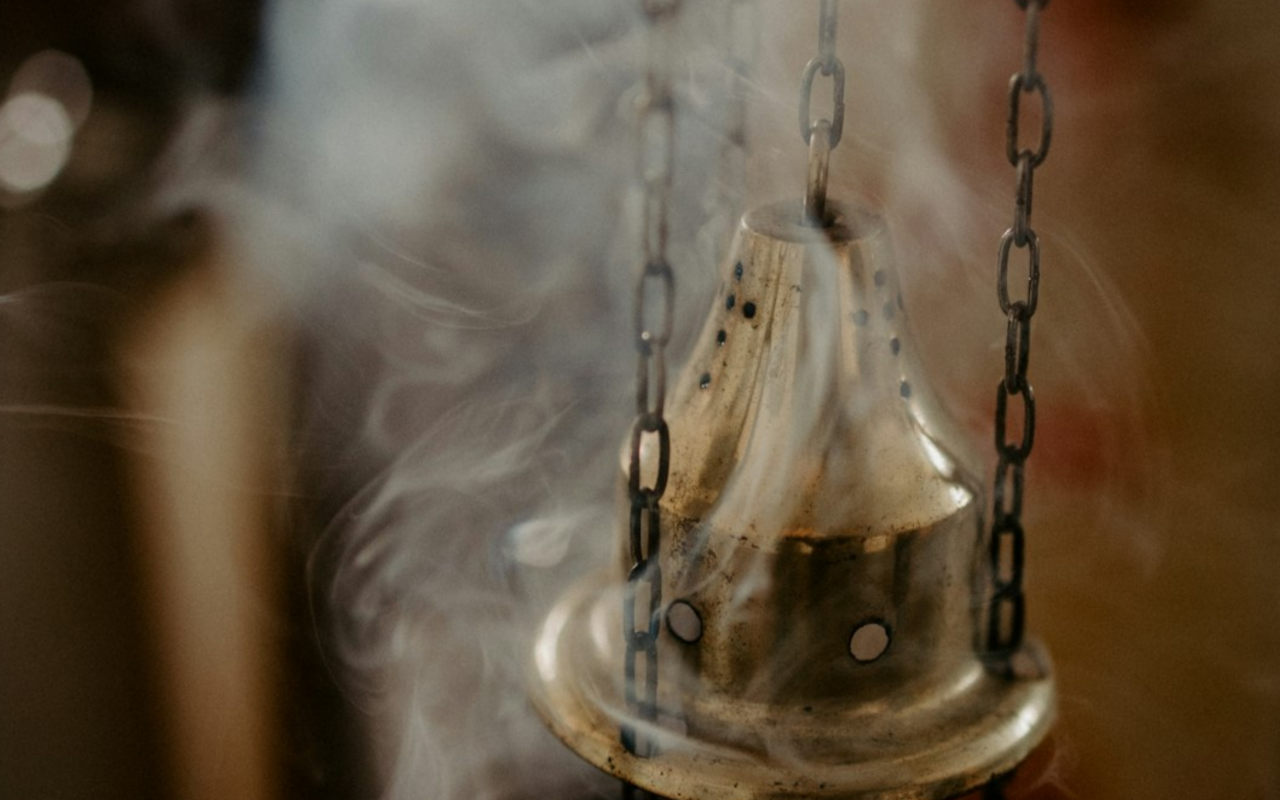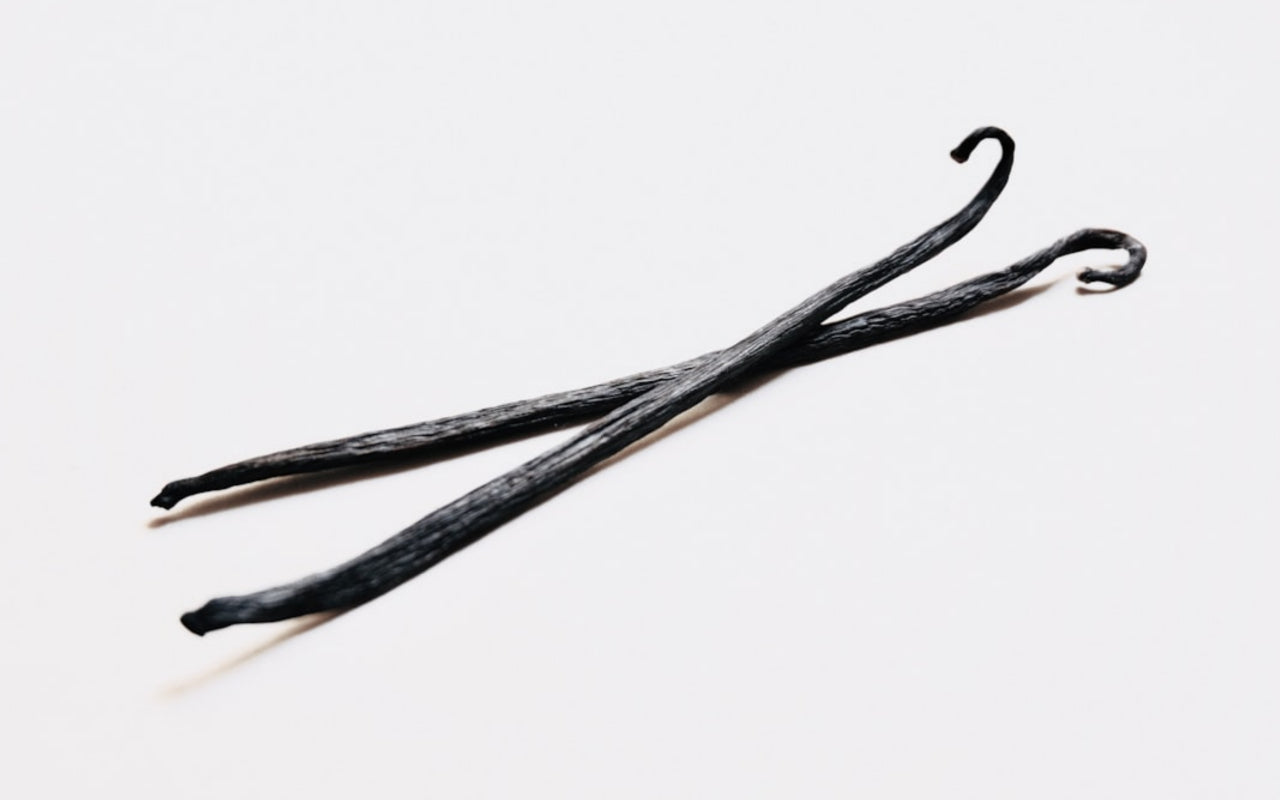Frankincense: The Sacred Essence

Bridging Spirituality and Sensuality in Perfumery
The exquisitely spectral and mild-altering natural essence of olibanum - otherwise known as frankincense - goes to the very origin story of perfumery. Indeed the word ‘perfume’ itself, coming from the Latin per fumum, means ‘through smoke’: precious aromatics, often literally worth their weight in gold, were burned by the ancients as offerings to placate and commune with the Gods, as well as for their sensual and aesthetic pleasure in scent rituals that formed a fundamental part of their daily lives.
The dried ‘tears’ of frankincense, a gum resin exuded from the cut bark of boswellia sacra trees in Oman, Yemen and Somalia, give out their scent only when distilled into essential oil form or heated in a censer until the fragrant matter is released to the heavens in the form of smoke that was said to form a direct dialogue between deity and human.
Along with myrrh, famously given alongside gold to the Christ child at the Nativity by the three magi, frankincense is considered by many cultures to be the most elevated and ennobling of all perfume ingredients, and still forms a part of perfumed sacraments in all of the world’s major religions.
The Sacred Aroma of Rome
Romans were obsessed with the substance - Nero is said to have burned one year’s worth of Arabian frankincense production in one year on the loss of his beloved concubine; with its inherently holy nature, but also with an undeniably alluring effect on the senses, it was known in Rome as the ’the sweat of the gods’.
The great admiration the culture had for this aromatic is very understandable as it is so multifaceted and unique: frankincense, derivated from the French word franc encens, or ‘pure incense’ is a profoundly healing botanical - it heals both body and mind. Used as a natural cicatrisant on wounds, it speeds up recovery and stimulates the immune system; it aids the respiratory system in allowing you to breathe more deeply, while also having a tranquillizing yet clarifying effect on the mind.
Wealthy Roman families employed conspicuously huge amounts of the prohibitively expensive resin imported from the coastal regions along the Arabian Sea, to offer prayers for safe passage for the deceased but also to highlight their aesthetic taste to those present and purify the air. Psychoactively, frankincense has relaxing but also exalting effect on the central nervous system in a way not dissimilar to cannabis; as a path to a ‘higher plane’, in perfumery there is no other ingredient that exemplifies the potent connections between religion and the spiritual with such an intoxicatingly calming effect on the senses.
Spirituality and Seduction in Fragrance
Because of the associations with Christian places of worship - you can always smell the hauntingly familiar scent of frankincense, styrax and benzoin hanging in the cold rafters in any church, where a mixture of frankincense, styrax and benzoin is used in many services- many niche perfumers have capitalized on the more austere and severe aspects of incense in their fragrances to create almost semi-ironic, holographic reproductions of popes and cardinals. With such compositions, if you want to, you can literally smell like a bishop or a choirboy, giddy on inhalations from all the olibanum.
Yet frankincense itself can actually have a far more sensual atmosphere when isolated and combined with softer, more erotic aromatic ingredients, without losing any of its inherent spirituality (twenties’ classic Chanel No 22, for example,- has a soft frankincense musk in the base, which tempers and anchors the sweetness of the florals in the heart of the perfume with an indefinable je ne sais quoi).
Embodying Sacred Purity and Sensual Comfort in Every Note
Octavian by Christian Provenzano
It can also be used in less self consciously ethereal, far bolder compositions: perfumer Christian Provenzano places a jewel-like frankincense in the heart of his starkly seductive triptych for Electimuss, Octavian, for instance, a luscious trio of rose absolutes, Iranian oud and olibanum that trails you in extravagant vermillion silks - but also with a more yearning and questioning, darker element that is probably created by the frankincense in the background balancing out the more ostentatious essences.
In aromatherapeutic use, frankincense is known to have aphrodisiac qualities that work on a deeper, and more disinhibiting, level than more immediately, recognizably ‘sexy’ essences such as sandalwood or white tropical florals. With its intriguing, indecipherable - yet magnetizing atmosphere- there is a guard-lowering quality to frankincense that is quietly euphoric.
Puritas by Christian Provenzano
Christian Provenzano also places an extremely high quality natural frankincense oil at the heart and centre of his understatedly beautiful perfume for Electimuss, Puritas, a scent inspired by the goddess Vesta - whose indistinguishable fires, emblems of Rome, were assiduously protected by the famous Vestal Virgins, sworn to chastity on pain of death. It is a rich, yet translucent olibanum that shines throughout the duration of the perfume, yet sufficiently softened and adorned to never feel too monothematic. Underlying the incense is a cushioning, balsamic softness of labdanum, amber, tonka bean that lingers tantalizingly on skin (and especially on clothes - do save your finest cashmere for this one), while in the top, a fresh, peppery accord of saffron and a brief sip of absinthe lead the frankincense centre stage subtly garlanded in gentle whispers of flowers - tuberose, geranium, ylang ylang, rose. Paradoxically, this forms a rather sensual backdrop to the main theme of the perfume, a chaste and sacred incense (While Vesta represented virginity and purity, she was also the goddess of hearth and home - a contradiction in terms that finds sophisticated resolution in this perfume, which is undeniably emotionally affecting and eroticizing while also keeping a dignified distance). Puritas encapsulates the crystalline purity and sacredness of frankincense while also bringing it down to earth with the comfortingly familar. It is an ideal scent for this time of the year as the winter holidays approach - warm, comforting - you might even say twinkling with the Christmas tree freshness of the top accord - but also blessed with quieter, deeper moments of emotional introspection.
About the author, Neil C. Chapman
Neil C. Chapman is an award-winning British writer who resides in the ancient Japanese city of Kamakura. An avid enthusiast of fragrance, among other things, in 2019 he published ‘Perfume: In Search of Your Signature Scent’ (subsequently nominated for a Perfumed Plume Award) published by Hardie Grant Books. He also regularly publishes his writings about fragrance on his The Black Narcissus blog. You can also find Neil on Instagram. Neil's book, "Perfume: In search of your signature scent" is available on Amazon.



